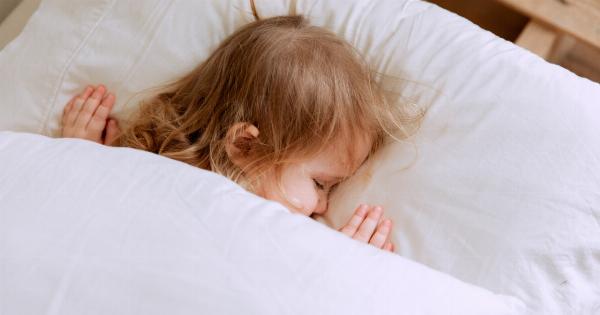As parents, we often wonder if our children are getting enough sleep and if their sleep is deep enough to allow them to wake up feeling rested and refreshed.
The depth of a child’s sleep is determined by the stages of sleep they progress through each night. In this article, we will explore the various stages of sleep and how they affect a child’s overall sleep quality and health.
Understanding Sleep Stages
There are four stages of sleep that the body progresses through each night:.
Stage 1
During this initial stage of sleep, the body is in a state of transition between wakefulness and sleep. It is easy to be awakened during this stage.
Stage 2
This is the stage of sleep where the body temperature drops, and the heart rate and breathing slow down. This stage is slightly deeper than stage 1, and it is considered a light sleep cycle.
Stage 3
During this stage, the brain begins to produce slow delta waves, indicating a deep sleep cycle. This is the stage where it is most difficult to wake a person up, and if they do wake up, they often feel groggy.
REM Sleep
The final stage of sleep is known as REM (Rapid Eye Movement) sleep. This is the stage where dreams occur, and the brain activity is similar to when a person is awake.
During REM sleep, the body is in a state of paralysis, except for the eyes and the diaphragm muscles. REM sleep typically occurs 90 minutes after falling asleep and cycles several times throughout the night.
How Does Sleep Affect Children?
The amount and quality of sleep that children get each night can significantly impact their mental and physical well-being.
Children who do not get enough sleep are at risk of developing Attention Deficit Hyperactivity Disorder (ADHD), having difficulty concentrating, and experiencing mood swings. Additionally, children who do not get enough sleep may have delayed growth and have an increased risk of obesity.
How Much Sleep Do Children Need?
The amount of sleep that children need varies by age. Here is a guideline:.
- 0-3 months: 14-17 hours per day
- 4-11 months: 12-15 hours per day
- 1-2 years: 11-14 hours per day
- 3-5 years: 10-13 hours per day
- 6-13 years: 9-11 hours per day
- 14-17 years: 8-10 hours per day
How Can You Tell If Your Child is Getting Enough Sleep?
There are a few signs that your child is not getting enough sleep. These include:.
- Difficulty waking up in the morning
- Difficulty staying awake during the day
- Depression or irritability
- Difficulty concentrating or focusing
- Hyperactivity
- Excessive daytime sleepiness
If your child is experiencing any of these symptoms, you may need to adjust their bedtime routine to encourage better sleep habits.
Tips for Improving Children’s Sleep
If you are having trouble getting your child to sleep deeply and restfully, here are some tips that may help:.
- Establish a regular bedtime routine
- Avoid stimulating activities before bed, such as playing video games or watching television
- Reduce exposure to electronic devices such as smartphones and tablets before bed
- Ensure that your child’s bedroom is quiet, cool, and comfortable
- Encourage outdoor activities and exercise earlier in the day to help your child wind down in the evening
In Conclusion
The depth of a child’s sleep is crucial to their overall health and well-being.
Parents can help ensure that their children get the sleep they need by establishing a bedtime routine, reducing exposure to electronic devices, and creating a comfortable sleep environment. Remember to speak with your child’s pediatrician if you have any concerns about their sleep habits or health.






























